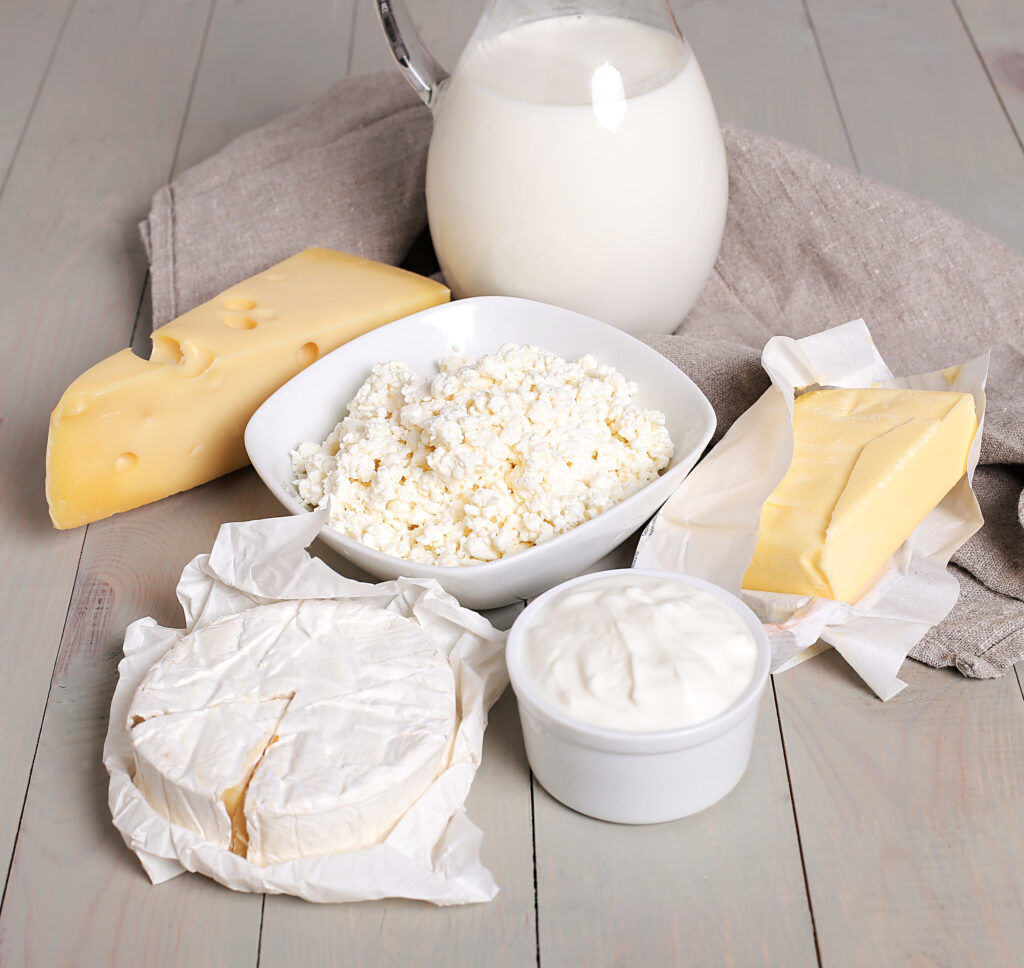Introduction
Are eggs dairy? In the realm of food categorization certain misconceptions persist, leading to confusion among consumers. The misunderstanding often arises from the placement of eggs in the dairy section of grocery stores or the inclusion of both eggs and dairy in various dietary guidelines. This blog aims to clear up the confusion by exploring the definitions, sources, and classifications of eggs and dairy products.
Understanding Dairy Products
Definition of Dairy
Dairy products are derived from the milk of mammals, primarily cows, goats, and sheep. Common dairy items include milk, cheese, butter, yogurt, and cream. These products are rich in calcium, vitamin D, and other essential nutrients that promote bone health and overall well-being.
Production and Sources
Dairy products are produced through the process of milking mammals, followed by pasteurization and various methods of processing to create different forms such as cheese or yogurt. The primary source of dairy in most parts of the world is cow’s milk, but goat and sheep milk are also popular in certain regions.

Understanding Eggs
Definition of Eggs
Eggs are laid by female animals of many different species, including birds, reptiles, amphibians, and fish. For the purpose of human consumption, the most commonly consumed eggs come from chickens. These eggs are rich in protein, vitamins, and minerals, making them a staple in many diets.
Production and Sources
Eggs are produced by hens, which are kept in farms specifically for egg production. The process involves the laying, collection, cleaning, and packaging of eggs for distribution to consumers. Unlike dairy, eggs do not come from mammals and do not involve any form of milk.
The Distinction Between Eggs and Dairy
Biological Differences
The primary distinction between eggs and dairy lies in their biological origins. Dairy products are obtained from the milk of mammals, while eggs come from birds (primarily chickens in the context of human consumption). This fundamental difference makes it clear that eggs are not dairy.
Nutritional Composition
While both eggs and dairy products are nutritious, they offer different sets of nutrients. Dairy is known for its high calcium and vitamin D content, essential for bone health. Eggs, on the other hand, are excellent sources of high-quality protein, essential amino acids, and various vitamins and minerals such as vitamin B12, riboflavin, and selenium.
Common Misconceptions
Grocery Store Placement
One reason for the confusion is the placement of eggs in the dairy section of many grocery stores. This is often due to convenience in refrigeration rather than any biological or nutritional similarities. Both eggs and dairy products require refrigeration to maintain freshness, leading to their proximity in stores.

Dietary Guidelines
Another source of confusion can be dietary guidelines and recipes that group eggs and dairy together. This grouping is often for convenience rather than scientific classification. Some diets, like lacto-ovo vegetarianism, allow for the consumption of both eggs and dairy, which might contribute to the misconception.
Dietary Consumption of Eggs
Eggs are a versatile and widely consumed food item across the globe. In many cultures, they are a staple breakfast food, commonly prepared as scrambled, boiled, or fried. In Asian countries like China and Japan, eggs are integral to dishes such as egg fried rice, tamago sushi, and mooncakes. Latin American cuisines incorporate eggs into dishes like huevos rancheros and flan. The global appeal of eggs stems from their nutritional value, affordability, and ease of preparation. They are a rich source of high-quality protein, essential vitamins, and minerals, making them a key component in both daily diets and festive recipes.
Dairy Product Consumption
Dairy products are equally integral to diets worldwide, varying significantly by region due to cultural preferences, economic factors, and lactose tolerance levels. In Western countries such as the United States and many parts of Europe, dairy consumption is high, with milk, cheese, yogurt, and butter being daily dietary staples. These products are valued not only for their taste and versatility but also for their nutritional benefits, including high calcium and vitamin D content, which support bone health. In contrast, in many Asian and African countries, dairy consumption is traditionally lower due to higher rates of lactose intolerance. However, the rising availability of lactose-free dairy products and plant-based alternatives has been changing consumption patterns in these regions.
Global Trends and Health Considerations
Global dietary trends show a growing awareness of health and wellness, influencing the consumption patterns of eggs and dairy products. In many parts of the world, there is a shift towards organic, free-range eggs and dairy products free from hormones and antibiotics. Additionally, with increasing concerns about cholesterol and saturated fats, consumers in developed countries are more inclined towards low-fat or fat-free dairy options. Conversely, developing countries are experiencing an increase in dairy and egg consumption due to rising incomes and urbanization. Despite these trends, both eggs and dairy products continue to play a vital role in global nutrition, offering essential nutrients that support overall health and well-being.
Conclusion
In summary, while eggs and dairy products are often found together in grocery stores and dietary guidelines, they are fundamentally different in their sources and nutritional profiles. Dairy products are derived from the milk of mammals, while eggs come from birds. Understanding this distinction helps clear up the confusion and allows for better dietary choices. Eggs are not dairy, and recognizing this can aid in proper food categorization and dietary planning.

